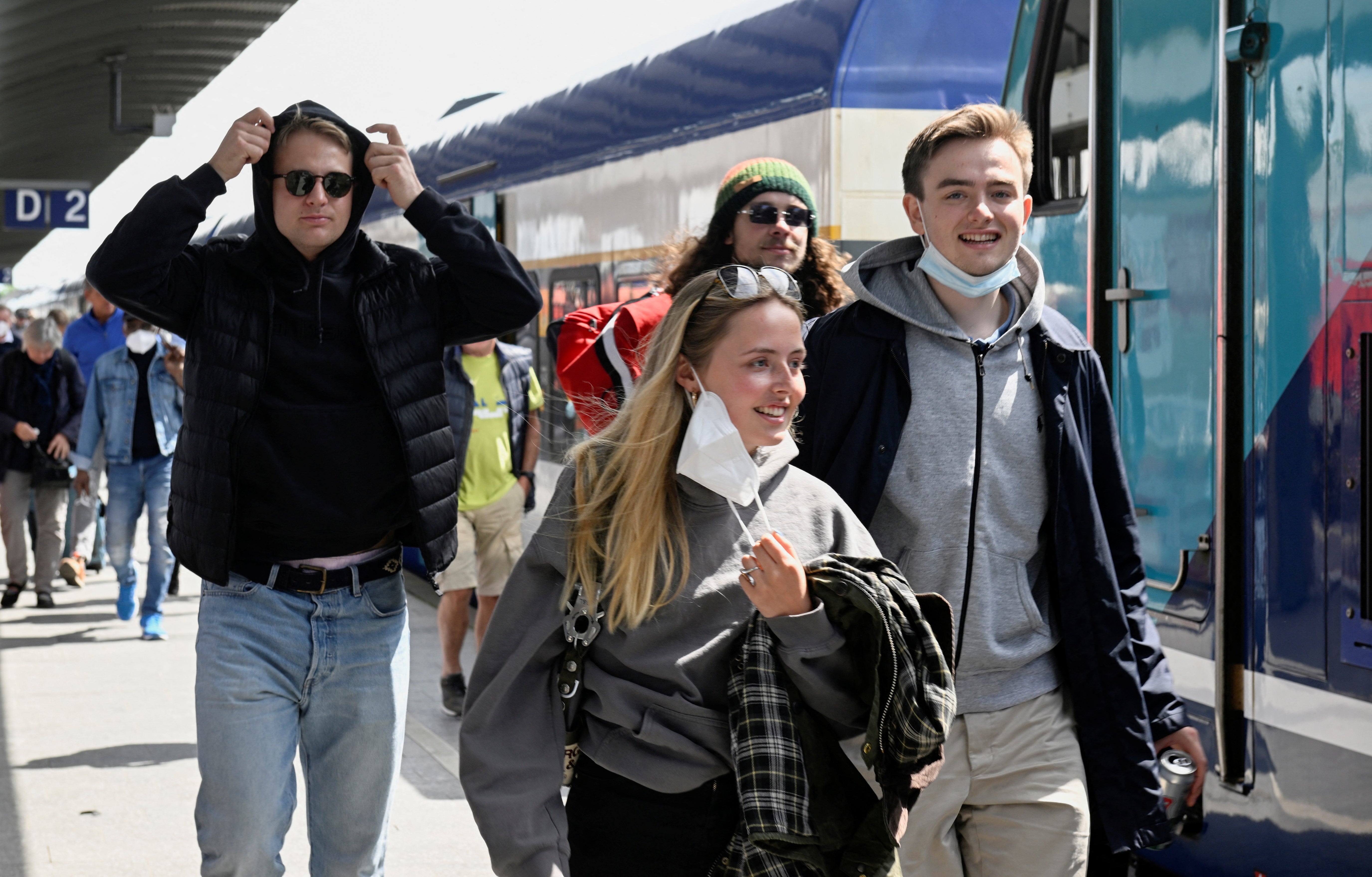Rail use rises by almost half in Germany after introduction of €9 unlimited train tickets
Germany’s government currently has no plans to extend the popular scheme

Short-distance train travel in Germany has increased by almost half after the country introduced a new ticket that allows unlimited train journeys for a whole month for just €9.
German residents have been able to buy the super-cheap monthly passes for about £7.50 each since 1 June.
The tickets are available until 31 August and allow passengers to make as many local and regional rail, bus, tram, subway and city river ferry journeys as they want.
Between April and June this year, rail travel has increased by 46 per cent – compared to the three months from January to March – according to the German federal statistical office Destatis.
Rail’s boom in popularity is “probably” down to the €9 pass issued by Deutsche Bahn and the lifting of Covid restrictions, the government department said in a statement.
In June alone, about 21 million tickets were sold according to data from the Association of German Transport Companies (VDV), on top of the 10 million or so people who automatically received the discounted pass.
The scheme has cost about €2.5bn in state subsidies. Germany’s federal finance minister Christian Lindner has ruled out extending it amid calls for another scheme to succeed it.
Ideas for future schemes include a monthly ticket for either €29 (about £24.50) or €69 (about £58), or a €365 (about £308) annual ticket for train journeys in specific areas of the country, according to reports.
The summertime rail scheme has encouraged a fifth of people to switch their cars for public transport for the first time, weekly surveys of about 6,000 public transport users by Deutsche Bahn and VDV have suggested.
But research by the Technical University of Munich suggests that just 3 per cent of 1,000 study participants had used their cars less often, while 35 per cent increased their use of buses and trains.
Klaus Bogenberger, who led the study, suggested that the proportion of people using their cars less could grow.
He said: “A radical change in everyday behaviour due to a new offer was not to be expected. This makes the percentage of people trying alternative modes of transport to their own car all the more important.
“The important result is that many have integrated public transport into their everyday lives.”
Meanwhile, in Spain, the government has announced that all commuter trains – run by Cercanías and Rodalies – and mid-distance regional services for journeys less than 300km – run by national rail operator Renfe – will be free from 1 September to 31 December.
Subscribe to Independent Premium to bookmark this article
Want to bookmark your favourite articles and stories to read or reference later? Start your Independent Premium subscription today.

Join our commenting forum
Join thought-provoking conversations, follow other Independent readers and see their replies